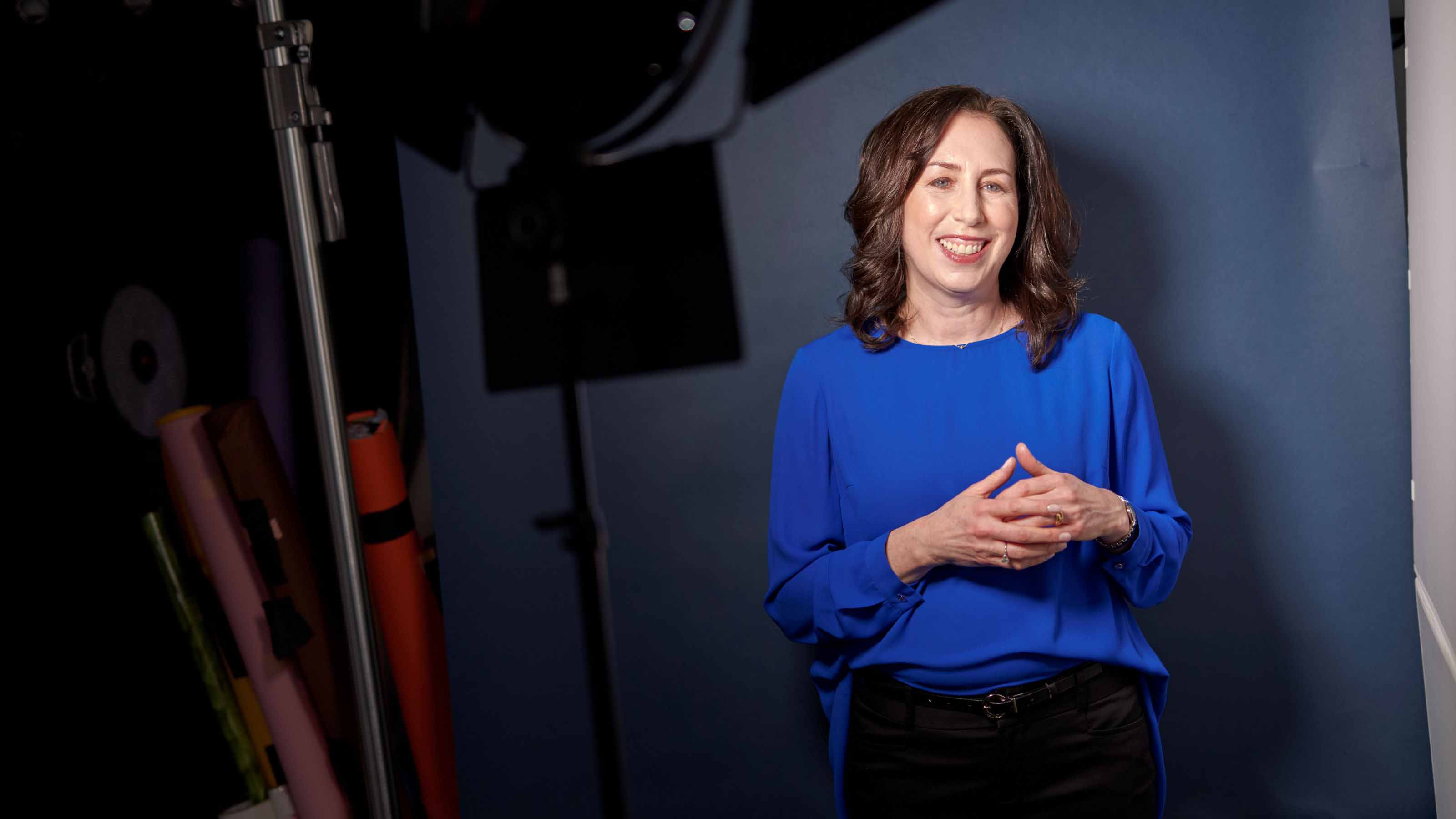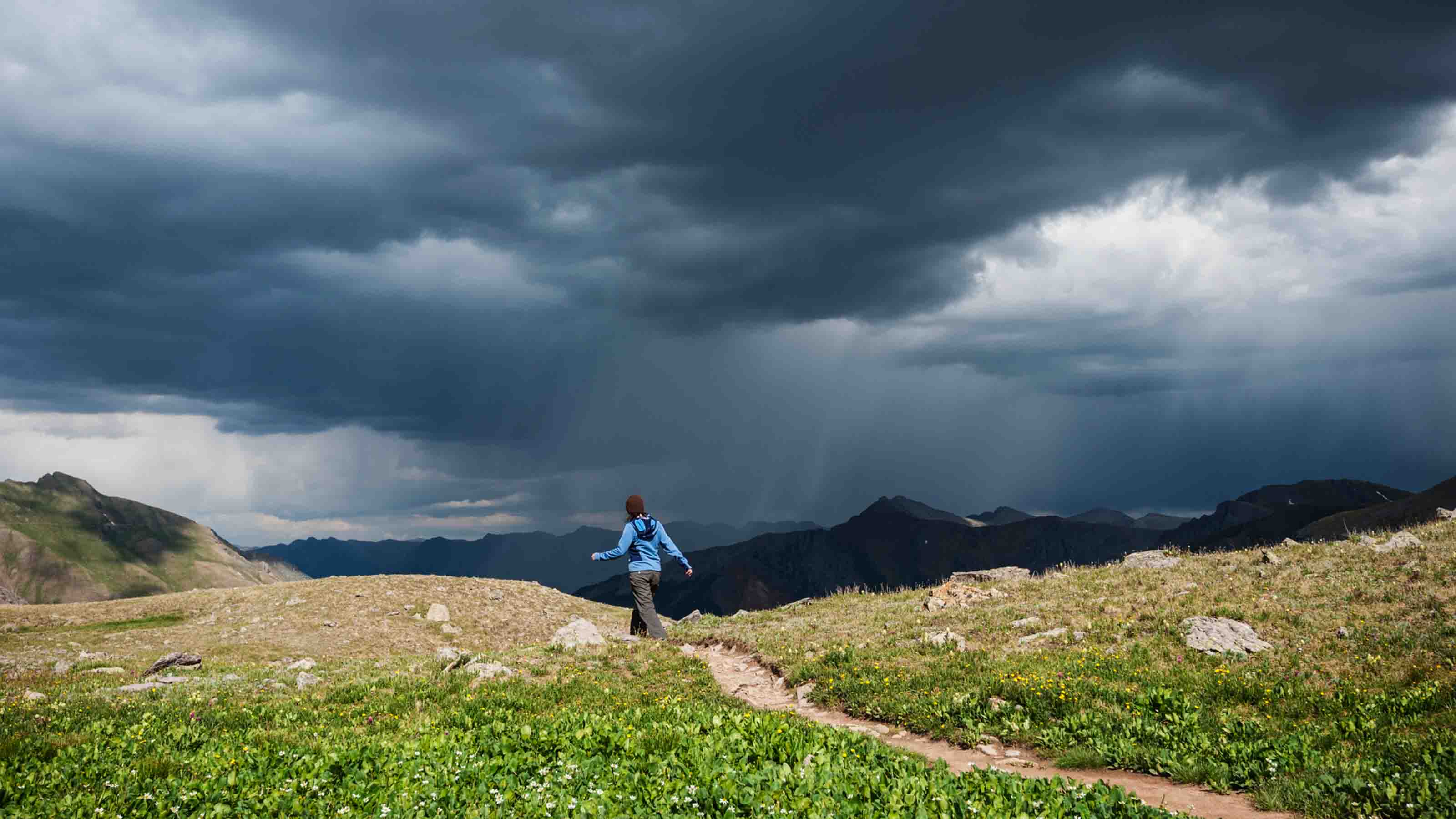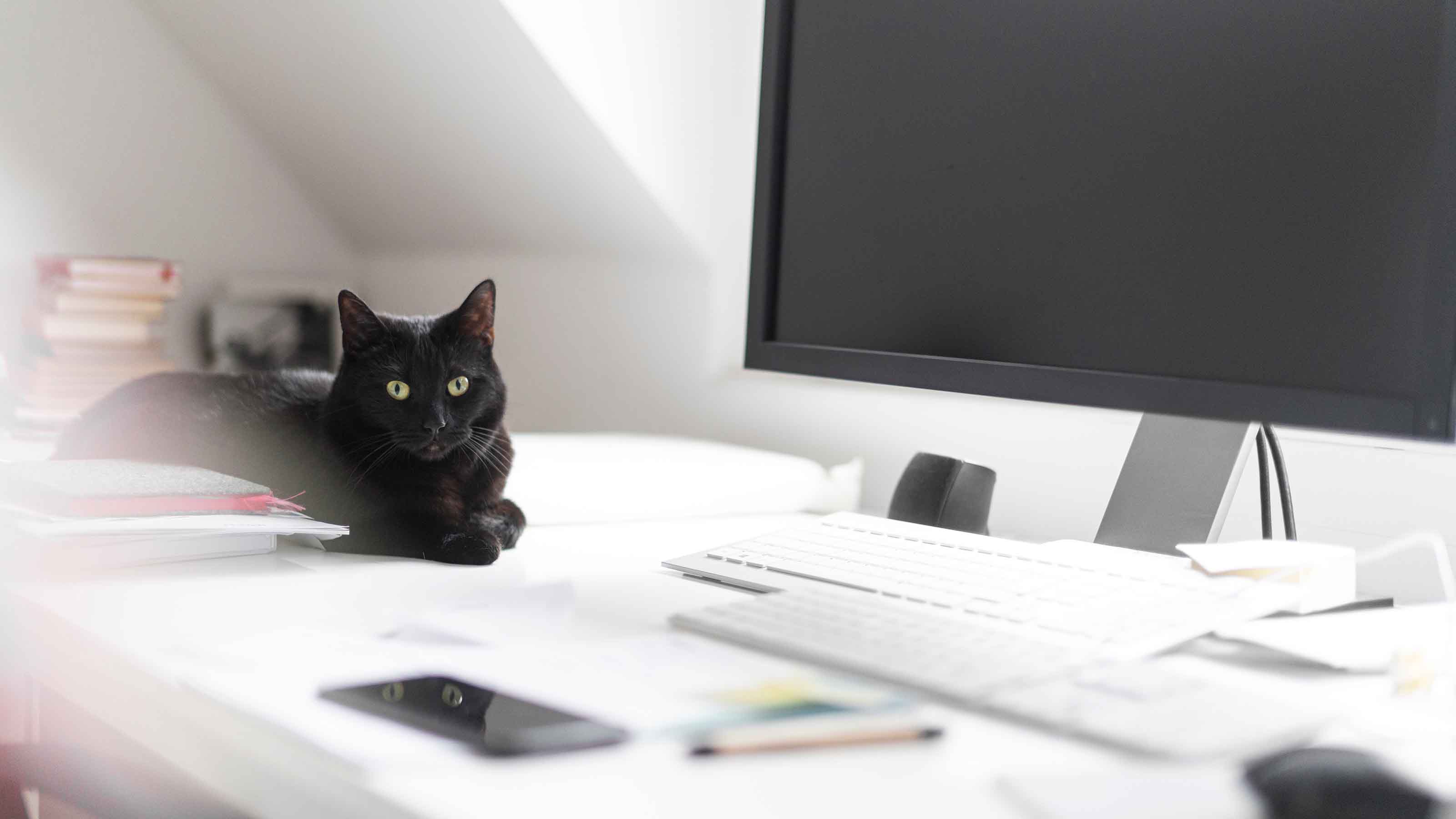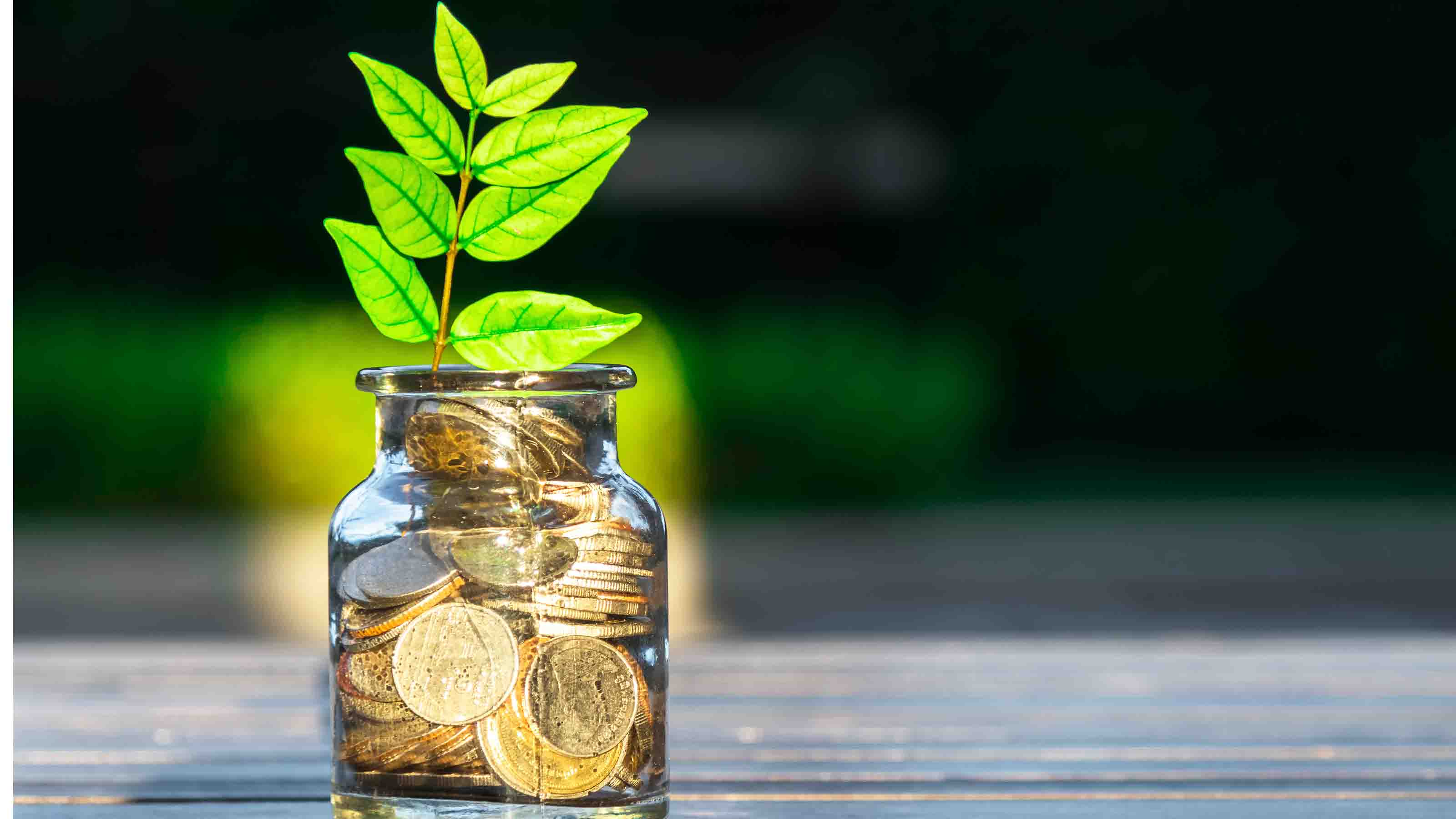PODCAST: Your Year-End Financial To-Do List
We know you've got a lot to tackle, but these are the must-dos you should review before the year runs out on you.

Profit and prosper with the best of Kiplinger's advice on investing, taxes, retirement, personal finance and much more. Delivered daily. Enter your email in the box and click Sign Me Up.
You are now subscribed
Your newsletter sign-up was successful
Want to add more newsletters?

Delivered daily
Kiplinger Today
Profit and prosper with the best of Kiplinger's advice on investing, taxes, retirement, personal finance and much more delivered daily. Smart money moves start here.

Sent five days a week
Kiplinger A Step Ahead
Get practical help to make better financial decisions in your everyday life, from spending to savings on top deals.

Delivered daily
Kiplinger Closing Bell
Get today's biggest financial and investing headlines delivered to your inbox every day the U.S. stock market is open.

Sent twice a week
Kiplinger Adviser Intel
Financial pros across the country share best practices and fresh tactics to preserve and grow your wealth.

Delivered weekly
Kiplinger Tax Tips
Trim your federal and state tax bills with practical tax-planning and tax-cutting strategies.

Sent twice a week
Kiplinger Retirement Tips
Your twice-a-week guide to planning and enjoying a financially secure and richly rewarding retirement

Sent bimonthly.
Kiplinger Adviser Angle
Insights for advisers, wealth managers and other financial professionals.

Sent twice a week
Kiplinger Investing Weekly
Your twice-a-week roundup of promising stocks, funds, companies and industries you should consider, ones you should avoid, and why.

Sent weekly for six weeks
Kiplinger Invest for Retirement
Your step-by-step six-part series on how to invest for retirement, from devising a successful strategy to exactly which investments to choose.
Listen now
Subscribe FREE wherever you listen:
Links and resources mentioned in this episode:
- How to Safely Socialize (and Work) at Home During the Pandemic
- 15 Money Moves to Make Now to Prepare for 2021
- Tune Up Your Finances for a Better 2021
- Build a Bond Ladder with ETFs
Transcript
David Muhlbaum: So, you want next year to be better? Start out on the right foot by getting to those financial tasks that must be done before this year ends. Hey, it'll save you money. Associate editor Rivan Stinson also joins us to talk about a variety of gadgets to extend backyard entertaining into the winter.
From just $107.88 $24.99 for Kiplinger Personal Finance
Become a smarter, better informed investor. Subscribe from just $107.88 $24.99, plus get up to 4 Special Issues

Sign up for Kiplinger’s Free Newsletters
Profit and prosper with the best of expert advice on investing, taxes, retirement, personal finance and more - straight to your e-mail.
Profit and prosper with the best of expert advice - straight to your e-mail.
David Muhlbaum: Welcome to Your Money's Worth. I'm Kiplinger.com senior editor David Muhlbaum, joined by senior editor Sandy Block. Sandy, how are you?
Sandy Block: Doing great, David.
David Muhlbaum: That's good. Well, we are shaking things up just a smidge this week by having a guest join us for our opening segment, about good gadgets to make pandemic safe entertaining possible. That guest is Rivan Stinson, associate editor for Kiplinger.com. She's one of the writers of a piece featured in January's Kiplinger's Personal Finance called How To Safely Socialize and Work At Home During the Pandemic. Welcome, Rivan.
Rivan Stinson: Thank you.
David Muhlbaum: So the three of us are recording from our respective homes right now, and with any luck, the leaf blowers won't show up during our chat. But I mention this because it's directly relevant to the piece you helped pull together, How To Safely Socialize and Work At Home. We do all kinds of things from home now.
Rivan Stinson: Right. And we've been adjusting for months, and now we have to adjust to the snow and the cold weather. So you have to think of how can I have people over but not necessarily in my house, because we are still very cautious about COVID transmissions and just being in close quarters. So what me and my coworkers, Emma Patch and Andrea Browne Taylor did, we put together a collection of products to help you make the outside more like inside, because everyone's not going to pull on their fleece and waterproof camping gear like you would, David.
David Muhlbaum: Yeah. I think Sandy embraces ugly weather too. Don't you? Don't you have to, what with being in West Virginia?
Sandy Block: Well, I don't know if I embrace it but I certainly endure it. And I feel like I need to point out at this juncture that in West Virginia, we've had our furniture outside for a long time. We're way ahead of this trend.
David Muhlbaum: Oh. The fridge on the porch?
Sandy Block: There you go. Nothing new here.
David Muhlbaum: Okay. I won't even tell you what passes for a couch out there, but anyway... We just came into possession of what seems to be one of the pandemic's hottest items. I mean that literally, a patio heater.
Rivan Stinson: What kind is it?
David Muhlbaum: I got the propane-powered infrared one. It's like a grill on a stick.
Rivan Stinson: Oh, nice.
David Muhlbaum: I haven't put it together quite yet. Frankly, I find the thing a little bit appalling. Like now we do our global warming directly? I mean, I get apoplectic when the kids leave the door open when it's cold, and now we're just going to go heat the great outdoors all the time.
Sandy Block: Well, I'm sure someone will appreciate it, even if the Earth doesn't. Maybe your in-laws?
David Muhlbaum: Well, yeah. That's right. They're in their 80s, and we still like to have them come over and sit on the porch. I guess that's what it's going to take.
Rivan Stinson: Well, I'm not in my 80s, but I don't like being cold. So I would appreciate that. But in addition to your propane patio heater, there's also a lot of electric ones, and we end up talking about them. But you need a lot of electricity to power them, and some of the voltage can get up to 240. So you may just want to get a good ol' fire burning wood stove or something like that.
David Muhlbaum: Fire. Yeah, I like fire. Fire, fire, fire.
Rivan Stinson: Yeah, but you need to still be safe, in a pit or you can get a chimenea. That's Spanish for chimney, and it explains the concept. Fire pit, sweep the smoke away. And like a number of the things on our list, they have been running low. So you may not be able to find it in a local garden center or hardware store. So you may want to check online.
Sandy Block: So I like the idea of sitting in front of a fire, and we certainly have been building bonfires at our house in West Virginia for years. But you know what always happens, my backside gets cold. Do you have anything for that, Rivan?
Rivan Stinson: Yeah. We do. If your outdoor space has electric outlets that you don't need a long extension cord for, just bring out your electric blankets, or you can also get these battery operated ones. And we listed two in our piece. One is a very, very high end one at $250, and the other one is $70 at Walmart. I would rationalize it as you can use it for camping, sporting events, or just keep it in your car if you live in a cold place. I'm recording in Michigan, so I think I actually may buy one for my family just to keep in case of emergency.
David Muhlbaum: Right. So the backseat people aren't complaining, "turn up the heat" and the front seat people don't want to turn up the heat. The backseat people can just put on the blanket.
Sandy Block: Or you've got a car like mine where the heater doesn't work. There you go.
David Muhlbaum: Your heater doesn't work at all?
Sandy Block: Well, not for the moment. It's an old car.
David Muhlbaum: Okay. Well, maybe we'll get you outfitted with a little wood stove. So here's my request though, how can you keep my drink warm so I don't drain all the mulled wine at a go?
Rivan Stinson: Well, it's kind of similar to the blanket situation. I mean, I know you like to camp and stuff, so I'm sure you have like a camping thermos. But if you don't want to bring that outside, you can also find a bunch of battery powered glove warmers on Amazon, like everything else. Or if you want to go high end, you may want to check out the Ember mug. It's temperature controlled through an app, and it comes with a recharging coaster. Those start at about $100, and I'm thinking about getting one in 2021.
David Muhlbaum: I control my coffee mug with an app? That just makes me feel old. Rivan, can you just give us a quick list of a couple other things that people will find in your slide show? And then we'll of course put a link into it.
Rivan Stinson: You'll find HEPA filters in case you do let people over, someone sneezes and you get a little freaked out. It should help pull the water droplets out. Also, an Apple Home System. So let's say someone is quarantined, you can speak to them in different parts of the house. And also, we wrote about work sheds. Let's say you want to have a totally different space, we have some options where you can hook up a space in the backyard. That's all the stuff we talked about.
David Muhlbaum: Thanks so much for joining us, Rivan.
Rivan Stinson: No, thank you for having me.
David Muhlbaum: Up next on our main segment, some more items for your to-do list. Yes, I'm sure it's already long. But these moves can save you money.
David Muhlbaum: We're back for our main segment, and our guest today is also our host, Sandy Block. So welcome again, Sandy.
Sandy Block: I changed hats.
David Muhlbaum:Yeah, okay. I can see that. What we're going to cover with you this week is our year-end to-do list. Now, I will just start out by telling you that I already have a domestic to-do list that's long, and then there's holiday shopping and decorating and the gutters, they're full of leaves. So now there's other things we have to do. We've got to do our year-end financial tasks. So tell me what I've really got to do. What's the number-one thing I've just got to do?
Sandy Block: Well, our cover story is about year-end money moves, and we've got a whole lot of things that you should think about doing before the end of the year. But what I'm going to talk about today are things that you have to do if you're going to do them at all by the end of the year because you have to do them by December 31st, and we're recording this on December 2nd. So time is wasting, and these are sort of your real year-end money moves.
David Muhlbaum: This is must versus should.
Sandy Block: Must versus should. And not going to apply to everybody. But if you're going to do them, you've got to do them pretty soon. And the first one is, again, we're recording on December 2nd. December 1st was Giving Tuesday when a lot of people were encouraged and did give to charity. This year, the stimulus bill that was enacted in March included a one-time provision that allows people to deduct up to $300 in charitable contributions, even if they don't itemize, and that's just about everybody. This was just a one-time deal to encourage people to give during the pandemic. So if you gave on Giving Tuesday or any other time this year, make sure you keep record of your donation because you will get a modest deduction for that, and you might as well claim it.
David Muhlbaum: That's just going to be for the 2020 tax year?
Sandy Block: Yes, that's a one-time deal. Unless Congress extends it next year, it'll be back to only people who itemize can deduct their charities, and right now that's about 10% of taxpayers. So it's not very many people.
Sandy Block: The other thing is, we've had a good year with the stock market, and a lot of people have big gains in their taxable accounts, which is great until you realize that the IRS wants its share of your profits. Investments held for less than a year will be taxed at your ordinary income tax rate. Long-term is taxed at long-term capital gains. But you will be taxed. Now the most effective way to reduce the tax bill is to ditch some of your losers. If you had some stocks that are worth less than you paid for them and you sell them between now and December 31st, you can use those losses to offset your gains.
David Muhlbaum: If you can find them.
Sandy Block: If you can find them, but there's still time to look. So this is called tax harvesting. It is the most effective way to reduce, and we'll explain short term and long term in the story. But pay attention to that if you've got some big gains you're worried about paying taxes on.
Sandy Block: Two more I'll hit on. One is max out on your retirement savings. You can contribute up to $19,500 in a 401K or other retirement savings plan. Another $6500 if you're over 50. Depending on how you get paid, you might be able to ask your HR department or payroll department to increase the amount withheld from your paycheck before year end.
David Muhlbaum: Right. And you need to get cracking on that.
Sandy Block: You need to get cracking on that. Depending on how often you get paid, that might not be an option. But if you get a bonus before now and December 31st, you can also ask your employer if you can contribute that to your retirement savings plan, and it's a good idea.
Sandy Block: Finally, a couple healthcare things. If you have a flexible spending account for healthcare, depending on your employer, you may have only until December 31st to spend all the money in it or forfeit it. Now there's a long list of things that you can spend. I have done this. So I think we've talked about this before. I've gone into Walgreens with a list.
David Muhlbaum: It changed.
Sandy Block: It changed.
David Muhlbaum: The list got longer.
Sandy Block: The list did get longer. Now you can use the money for nonprescription drugs, like coffee medicine, ibuprofen, stuff like that. Feminine hygiene products, that was part of the CARES Act. So whatever you use it for, use it if you have that December 31st deadline. You do not want to lose that money that you've saved.
Sandy Block: And finally, think about squeezing in some medical appointments. Now this is a little dicey with COVID. That's not always an option. But if you've already met your health plan deductible for 2020, any needed medical appointments toward the end of the year can save you money. If you wait until next year for your doctor visits, you may have to pay the full cost until you meet the deductible. And again, there's another pandemic add-on here, which is if you don't want to go to the doctor or to the hospital, wherever, see if your physician offers telehealth visits, which allow you to consult clinicians on a video chat or phone call. Check how your insurance plan covers such things, but there have been a lot of expansions in that area because so many people are having to manage things from home. Even a session with a mental health therapist or regular check-ins with your doctor for a chronic condition, you may be able to do a virtual visit for that and get it covered.
Sandy Block: So those are just some of the things. Like I said, we got a much longer list. There's lots of other things you might want to be thinking about doing before the end of the year. But our tax system and a lot of other things work on a calendar year basis, and that means you got to act by December 31st or start over.
David Muhlbaum: Sandy, I just wanted to jump back to the flexible spending account thing and the calendar year that you mentioned. So the change of the new items that are allowed, it goes all the way back to January 1st, even though the law didn't pass until March. And so I just want to point out that, now that a lot of people buy eligible items online, you could go back and get your online receipts and apply them.
Sandy Block: You sure could, and that would save you from my midnight rush to Walgreens. You may have already spent that money and be able to get reimbursed for it, and that applies to other things that were added as well. In some cases, and actually I think this is true where we work, David, you actually have until March 15th I think to turn in your receipts, get reimbursed for FSA. But a lot of places, you do have until December 31st, and that use-i-or-lose-it thing is very important thing to pay attention to because you certainly... Healthcare costs are high enough. You don't want to give money back.
David Muhlbaum: It hurts to lose that money.
Sandy Block: It's terrible. Yeah, it's really bad.
David Muhlbaum Awesome. I'll try to get on it. I will do my best. Thank you, Sandy.
David Muhlbaum: Sandy, you and Ryan used to do the "explain it to me like I'm five" thing. It sounded like fun.
Sandy Block: It was fun, and I'm not going to go down the rabbit hole of where that came from. But it's sort of basic to personal finance. You want to explain things to people in a way that they understand.
David Muhlbaum: Yeah. I'm not sure I can imitate it, but I was inspired by the idea of explaining something simply and succinctly. It kind of reminded me, back before smartphones, when my wife was stuck with me on long car trips, I would sometimes try to explain something technical, usually about cars, in 30 seconds, because that was usually the point where she'd yawn. Antilock brakes — I got 30 seconds: Go! It was just sort of like an intellectual discipline.
Sandy Block: Well, you've got more than 30 seconds here, and we can edit out any of my yawning. So what did you want to explain to the people?
David Muhlbaum: Well, we got this piece, again in Kiplinger's Personal Finance about bond ladders. Now bond ladders are an old investing concept, but Nelly Huang, the author, she gave it a new spin by mixing in a relatively new investing concept, the exchange-traded fund. And she managed to explain it really well. So if our condensation of it fails, well, you could read the article. You probably should anyway.
Sandy Block: Okay. So first thing, explain to me what a bond ladder is, and I am timing you.
David Muhlbaum: So, a bond is an investment that regularly pays you money. How much? It depends on the coupon rate of the bond, and what that is depends on the market and a bunch of other factors. So in short, bonds pay different rates, and generally speaking, the longer the maturity of the bond, that is how long you have to wait to get your principal back, then that's the higher rate that you get paid on the coupon.
Sandy Block: Okay. So you've got coupon, maturity and principal all in there. I don't know if I'd get that if I were five, but yeah, that's bonds. But you didn't talk about ladders.
David Muhlbaum: Well, I was getting there, I was getting there. So we've established that how much a bond pays varies and that one of the reasons it varies is how long the bond's maturity is. So retirees and other people who buy bonds, they want to get a good yield, that's how much they get paid. But they don't want to lock up their money forever, and that's the tension. So this is where the ladder concept comes in. So to resolve that tension, the bond ladder lets you spread your investments in bonds with staggered maturities, those are like the rungs of the ladder. And as portions of your portfolio mature at a regular interval, like you get the money back. You invest that proceeds in another rung. You buy another bond farther up the maturity line, and you step, step, step. You climb along the ladder. You're moving through time.
Sandy Block: But you never actually get anywhere. You just keep climbing, right?
David Muhlbaum: Well, yes and no. The ladder works as long as you need it to work to make money for you into the future. Now if you need the money for something else, you stop buying new bonds, and you take the money from those that mature and you spend it or you invest it elsewhere, whatever you were planning to do. That would mean you got off the ladder. You can't go back down because that would be going back in time, and we can't do that with current technology.
Sandy Block: Not yet.
David Muhlbaum: Not yet. But you could also take smaller steps. You could put the rungs closer together by picking bonds with maturities that are closer together, but let's not overload the metaphor.
Sandy Block: Okay. I think that was good. I'm going to take a turn with exchange rated funds, and then you can take another crack at how Nellie's piece ties them together.
Sandy Block: So, like the mutual funds they're derived from, an exchange traded fund is a basket of investments. In this case, they're a basket of bonds. Sometimes hundreds or even thousands in one fund. Buying a bond fund instead of an individual bond has a number of advantages for the individual investor. Chief among them is that you're again spreading out your risk. Having some of a lot of investments is safer than having all of your money in one investment. I'm oversimplifying it because I'm probably being timed, too, but not much.
David Muhlbaum: Yeah. And there are bond ETFs with different maturities then too. Short, medium, long, just like the individual bonds.
Sandy Block: That's right, but they can be far more specific than that. There are funds from iShares and Invesco where all the bonds mature in a given year. That's called a target maturity bond exchange traded fund, right?
David Muhlbaum: Target maturity bond exchange traded fund. I think we need an acronym. TMBETF
Sandy Block: Nope. This is not a SPDR. It's not going to catch on, I promise.
David Muhlbaum: TMBETF. No. Okay. Fair enough. So these target maturity bond exchange traded funds, I'm being very specific there. So we're going to use those as the rungs on my bond ladder. So instead of buying an individual bond, I buy one of these bonds for each year of maturity that I want to go out to. One, three, five, 10. That's got a lower risk if I'm messing around with higher yield bonds, junky stuff, right?
Sandy Block: Right. And a lot of people are doing that now because yields on the safest bonds are so low. The risk reduction is less of a factor when you're buying in safer areas of the bond market, like municipal bonds, but then even there can be advantages. For one thing, the management expenses of these funds are ultra low.
David Muhlbaum: Yeah. That said though, there was an interesting caveat at the end of Nellie's piece, which is where she said, "While this new twist on bond laddering has plenty of promise," the advisor she spoke to said, Don't go whole-hog on it, essentially, diversify again. They said, "Consider investing in a range of bond funds, not just," here's our term, "target maturity bond exchange funds."
Sandy Block: So, further diversification. Diversify, diversify...
David Muhlbaum: ….Diversify. Well, I hope you all didn't nod off on the passenger seat over there. We'll pop a link to Nelly's article in the show notes. I encourage you to read it.
David Muhlbaum: And that will just about do it for this episode of Your Money's Worth. I hope you enjoyed it, and I hope you'll sign up for more at Apple Podcasts or wherever you get your content. When you do, please give us a rating and a review. If you're already a subscriber and haven't yet put in a good word for us, well, please do. To see the links we've mentioned on our show, along with more great Kiplinger content on the topics we've discussed, visit Kiplinger.com/podcasts. There are transcripts there as well. And if you're still here because you want to give us a piece of your mind, you can stay connected with us on Twitter, Facebook, or Instagram or by emailing us at podcasts@kiplinger.com. Thanks for listening.
Subscribe FREE wherever you listen:
Links and resources mentioned in this episode:
Profit and prosper with the best of Kiplinger's advice on investing, taxes, retirement, personal finance and much more. Delivered daily. Enter your email in the box and click Sign Me Up.

In his former role as Senior Online Editor, David edited and wrote a wide range of content for Kiplinger.com. With more than 20 years of experience with Kiplinger, David worked on numerous Kiplinger publications, including The Kiplinger Letter and Kiplinger’s Personal Finance magazine. He co-hosted Your Money's Worth, Kiplinger's podcast and helped develop the Economic Forecasts feature.
-
 The Cost of Leaving Your Money in a Low-Rate Account
The Cost of Leaving Your Money in a Low-Rate AccountWhy parking your cash in low-yield accounts could be costing you, and smarter alternatives that preserve liquidity while boosting returns.
-
 I want to sell our beach house to retire now, but my wife wants to keep it.
I want to sell our beach house to retire now, but my wife wants to keep it.I want to sell the $610K vacation home and retire now, but my wife envisions a beach retirement in 8 years. We asked financial advisers to weigh in.
-
 How to Add a Pet Trust to Your Estate Plan
How to Add a Pet Trust to Your Estate PlanAdding a pet trust to your estate plan can ensure your pets are properly looked after when you're no longer able to care for them. This is how to go about it.
-
 PODCAST: Tax Breaks for College Finance with Kalman Chany
PODCAST: Tax Breaks for College Finance with Kalman ChanyPaying for College Paying for (ever-pricier) college is a challenge that this consultant meets head on with highly specific guidance.
-
 PODCAST: Car-Buying in an Inflated Market with Jenni Newman
PODCAST: Car-Buying in an Inflated Market with Jenni NewmanBuying & Leasing a Car With cars both scarce and expensive these days, what to do if you want – or need – a new ride? Car-buying strategist Jenni Newman of Cars.com shares some tips. Also, more on the magical 9% savings bond.
-
 PODCAST: How to Find a Job After Graduation, with Beth Hendler-Grunt
PODCAST: How to Find a Job After Graduation, with Beth Hendler-GruntStarting Out: New Grads and Young Professionals Today’s successful job applicants need to know how to ace the virtual interview and be prepared to do good old-fashioned research and networking. Also, gas prices are high, but try a little global perspective.
-
 PODCAST: Is a Recession Coming?
PODCAST: Is a Recession Coming?Smart Buying With a lot of recession talk out there, we might just talk ourselves into one. We take that risk with Jim Patterson of The Kiplinger Letter. Also, dollar stores: deal or no deal?
-
 PODCAST: This Couple Tackles Love and Money as a Team
PODCAST: This Couple Tackles Love and Money as a TeamGetting Married Fyooz Financial, the husband and wife team of Dan and Natalie Slagle, have carved out a niche advising other couples with the money questions that come with pairing up. Also, where is this troubled stock market headed?
-
 COVID’s Financial Toll Isn’t What You Think
COVID’s Financial Toll Isn’t What You ThinkCoronavirus and Your Money From a grandma’s retirement in ruins to a troubled teen inheriting too soon, COVID’s effects will last for generations. While nothing can prepare you for the pain of losing someone you love, a financial planner explains how preparation can lessen the financial devastation.
-
 PODCAST: Which Documents to Keep, Which to Shred and Which to Scan
PODCAST: Which Documents to Keep, Which to Shred and Which to Scanhome insurance A speedy recovery from disaster can depend on your recordkeeping. Kiplinger’s Personal Finance writer Rivan Stinson tells us how to get our papers in order.
-
 PODCAST: Decoding ESG Investing with Ellen Kennedy
PODCAST: Decoding ESG Investing with Ellen KennedyBecoming an Investor Environmental, social and governance investing is simpler than it sounds, and has a profitable track record to boot.

